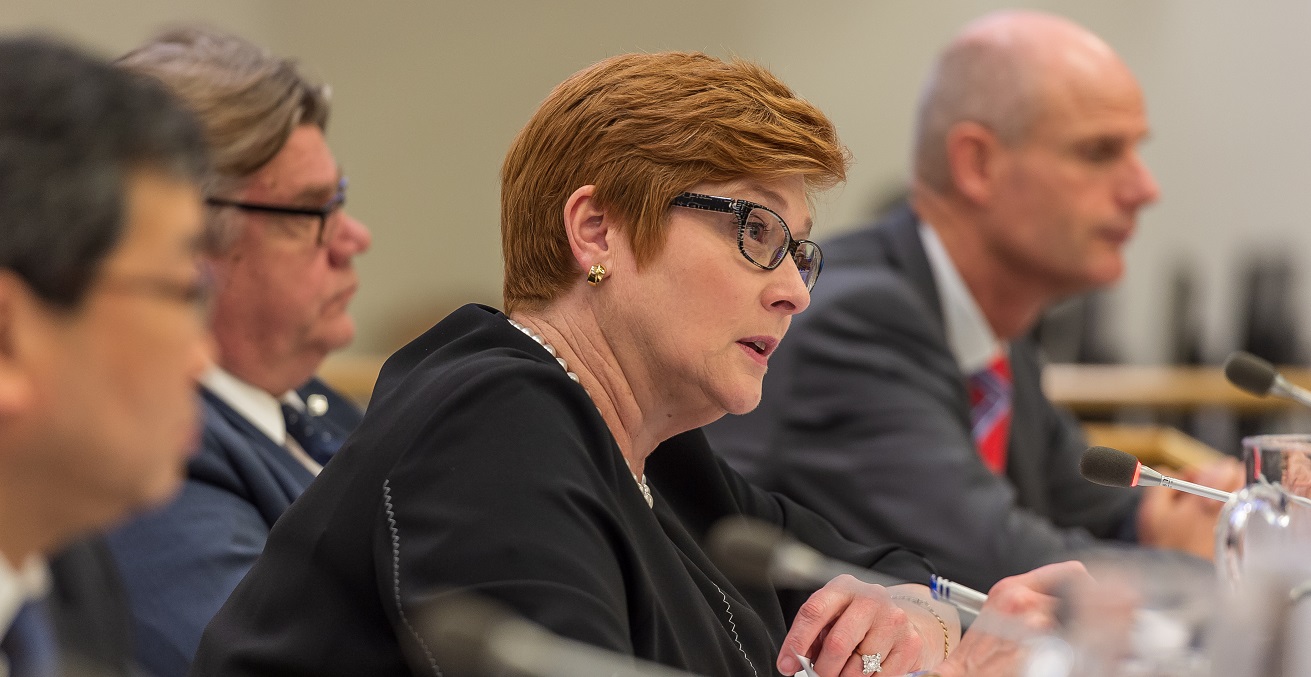Tearing Up the Belt and Road Initiative: Australia’s Rejection of China’s New Silk Road in Victoria

The Australian federal government recently resolved to scrap the Victorian state government’s Belt and Road Initiative (BRI). The timing of this decision needs to be contemplated as ongoing developments may trouble bilateral relations between Australia and China.
In the last five years, the relationship between Australia and the People’s Republic of China (PRC) has been on a significant decline – its grimmest in decades. The fractious tension between the two countries has seen their core interests considerably challenged.
For Australia, they included escalated trade issues with its beef, barley, cotton, lamb, resources, seafood, sugar, timber, and wine exports to the PRC, with China inflicting more than $20 billion of tariffs on Australian exports, the deterring of Chinese students to study at Australian universities, the cyber-attacks coming from China on an array of Australian entities, and Beijing’s efforts to interfere in the Australian political system.
For the PRC, it was the banning of Huawei and ZTE to participate in the building of the 5G network in Australia over security concerns, Canberra’s call to lead an independent inquiry into the origins of the COVID-19 pandemic, the strengthening of the Quadrilateral Security Dialogue (encompassing Australia, India, Japan, and the US), Beijing’s frustration towards Canberra on its oppositional policy stance in the South China Sea, Hong Kong, Taiwan, and the Xinjiang province, and the Australian federal government’s opposition of Victoria signing the BRI Memorandum of Understanding (MOU) and “framework” agreement. In addition, in August 2020, Australian Treasurer Josh Frydenberg opposed a proposed $600 million dairy deal with Lion and China Mengniu “on food security grounds,” which aggravated tensions with China.
Subsequently, Prime Minister Scott Morrison made a major announcement which pledged that Australia would propose new foreign interference legislation that allows the federal government the power and authority to regulate all agreements made with foreign countries, including those initiated by state and territory governments, local councils, and public universities. This provides the government with “exclusive responsibility for conducting Australia’s foreign affairs.” The legislation allowed the foreign minister to review, “prevent from proceeding or terminate” any agreements proposed or already put in place.
Australia’s Decision to Scrap the Initiative
The implications of the fallout of bilateral relations have, to a great extent, shaped Australia’s decision to tear up Victoria’s BRI agreement. The amalgamation of economic and security policy in Canberra evolving over the last few years was missed or ignored by Victoria. Contributing to the cancellation was also a lack of consultation with the Department of Foreign Affairs and Trade (DFAT) and federal oversight from the Victorian state government upon the “framework” agreement prior to its signing in October 2019.
The prime minister indicated that Victoria’s BRI agreement was “inconsistent with the Australian government’s policy” and not “consistent with Australia’s national interest.” Canberra deems that the deal is employed by Beijing in an effort to expand its influence in the region and to bypass the federal government. To preclude such a scenario, the foreign interference legislation served two key objectives. The first is to provide the Australian federal government with the mechanism to end the Victorian state government’s BRI agreement as it expressed geostrategic concerns. The second is to deter the engagement of foreign governments by Australian sub-national government and actors.
In December 2020, both Australian major political parties, the Coalition and Labor, supported and passed the Foreign Relations Bill in federal Parliament. In April 2021, the Australian federal government acted, with Foreign Minister Marise Payne directing the dissolution of Victoria’s BRI agreement, concluding that it was “inconsistent with Australia’s foreign policy or adverse to our foreign relations.” The enactment of the Commonwealth’s new foreign veto laws is the first of its kind, in that it empowered a country to cancel a signed BRI agreement.
The embassy of the PRC responded by characterising the move as “unreasonable and provocative,” outlining that “it further shows that the Australian government has no sincerity in improving China-Australia relations. It is bound to bring further damage to bilateral relations, and will only end up hurting itself.” China observed that cancelling its BRI agreement with Victoria will not only have a negative impact on the state’s economic development, but additionally on the deteriorating economic and trade relations between Canberra and Beijing.
Victorian Premier Daniel Andrews maintained that the deal was focused on Victorian employment, economic prosperity for the state, and building Australia’s relationship with China. However, since the cancellation of Victoria’s BRI agreement, the Victorian state government has not come out to defend it. Employment and Small Business Minister Jaala Pulford asserted that the state’s pipeline of infrastructure projects will not be adversely affected and it was “a matter for the Commonwealth government.”
What Next?
Canberra’s dismissal of Victoria’s BRI agreement is emblematic of Australia’s resolve to defend the national interest by pushing back against Chinese Communist Party leadership when doing so is deemed necessary. With Beijing responding in resentment, bilateral relations between Australia and China will remain frosty in the short term, with further trade sanctions to come.
The PRC’s relative power and influence will continue to ascend in the Indo-Pacific. Like Australia, most countries in the region face similar challenges of striving to build upon their economic and security interests while simultaneously managing their relations with China and the US. Canberra is in an inopportune situation as its relationship with Beijing is at rock-bottom, making it more difficult for to traverse its way through diplomatic tensions between the major powerhouses.
Australia will look at additional opportunities to harness alternatives to China’s BRI. In November 2019, Canberra signed onto the “Blue-Dot Network” (BDN), partnering with Japan and the US, while India agreed to join in February 2020 as part of the Joint Statement for a Comprehensive Strategic Partnership. The BDN was established to counteract the BRI and certify infrastructure projects in the Indo-Pacific region and around the world. At the moment, the BDN has not evolved beyond a formalised scheme, but as a geopolitical mechanism, it has the potential to mobilise federal governments and private capital to meet the vast need for infrastructure across the Indo-Pacific region.
The enactment of the Foreign Relations Act will prompt other sub-national government agreements to come to light for review. Most recently, a 2017 agreement between the Victorian state government and the PRC is being examined to ascertain if it undermines Australian foreign policy. Its objective is to facilitate public-private partnerships between the state government and Chinese companies which are mostly state-owned. Despite the cancellation of Victoria’s BRI deal, such agreements through Beijing that have the possibility of undermining Australian foreign policy interests will continuously face scrutiny by the Australian federal government.
John Varano is a Senior Manager at nbn™ Australia. John has advised and supported C-suite and senior executives at ASX companies and government departments. His professional experience extends across multiple geographies, including Australia, the EU, UK, and US. John is a Graduate of the Australian Institute of Company Directors and an Associate Fellow of the Institute of Managers and Leaders. He holds a Master of Science from the University of Oxford, a Master of Business Administration from Johns Hopkins University, and a Master of Arts from The University of Melbourne with First Class Honours. He completed his undergraduate studies with Honours at Monash University.
This article is published under a Creative Commons License and may be republished with attribution.





